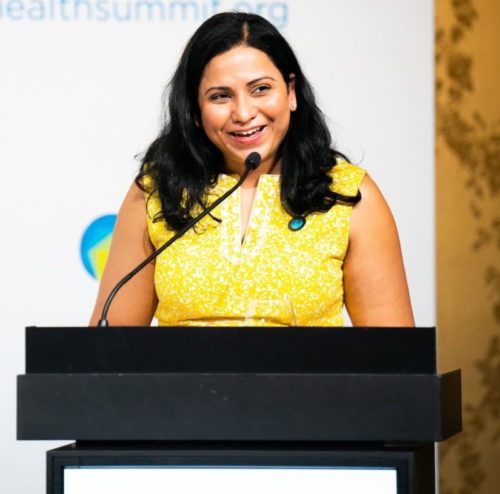Our Advocacy
We elevate the voices and visibility of those affected by gender inequity in health, bringing to the forefront those who have been heard least.
Our goal is to remedy the inequities of leadership, pay, and working conditions as well as the impacts of policy and program decisions on women. This local-to-global movement is not just for the benefit of the health workforce but serves as one of the most far-reaching and cost-effective interventions to improve health care generally.
We collaborate, communicate and mobilize to convince decision-makers to adopt gender transformative policies to revolutionize the systems, structures and norms that perpetuate gender inequality in health. This local-to-global movement is not just for the benefit of the health workforce but serves as one of the most far-reaching and cost-effective interventions to improve health systems generally.


Equal representation in global health leadership
Currently, women make up 70 percent of the health workforce globally and represent about 90 percent of frontline health workers, but hold just a quarter of leadership positions.
The exclusion of women from the majority of health decision-making roles is inequitable, but more than that, it weakens global health since the women workers who know most about health systems have the least say in their design and management. Women from low- and middle-income countries (LMICs) face the greatest barriers accessing senior posts in their home countries and globally. Health policy decisions are not influenced equally by the priorities and experiences of men and women, and global health is diminished by lost female ideas, innovation, expertise and talent.
We advocate for equal representation of women in decision-making roles across the global health sector, especially as they represent the vast majority of global health workers.

New social contract for women health and care workers
The COVID-19 pandemic has brought to light the gender inequities and disparities that exist within the health and care workforce. Despite being hailed as heroes, women health and care workers face a range of challenges, from low pay and lack of job security to limited opportunities for career advancement and leadership positions. These barriers not only impact women’s lives but also have serious implications for the health systems they work in and the communities they serve.
To address these challenges, a new social contract is needed to support and promote gender equity in the health workforce. Women in Global Health (WGH) is advocating for this new social contract, which must include fair pay, safe and decent work conditions, harassment-free workplaces, and equal opportunities for leadership. By investing in women’s health and care workers, we can prevent the “Great Resignation/Migration” of health workers and achieve global health security and Universal Health Coverage (UHC).

Gender Equity in Health Emergency Preparedness and Response
COVID-19 has presented us with a break in history and an opportunity to fix the structural weaknesses in our health and social systems so we can better withstand future shocks.
A gender-responsive approach to pandemic preparedness and response would ensure that the unique needs and perspectives of women and girls are integrated into all aspects of the public health response. This includes conducting sex-disaggregated data analysis, involving women in decision-making processes, and addressing the gendered impacts of pandemics, such as increased domestic violence and unpaid care work. By prioritizing gender-responsive pandemic preparedness and response, we can promote more equitable and effective health outcomes for all members of society.

Universal Health Coverage
Universal Health Coverage (UHC) means that all people have access to the health services they need, when and where they need them, without financial hardship. It includes the full range of essential health services, from health promotion to prevention, treatment, rehabilitation, and palliative care (WHO, 2019).
UHC will not be achieved anywhere without addressing gender equality, women’s rights and the role of women in the global health workforce. Women in Global Health are co-convenors of the Alliance for Gender Equality and UHC along with Women Deliver and Spectra Rwanda.
Since its inception, the Alliance has been successful in increasing awareness and interest about gender and SRHR in the UHC space through annual side events at the World Health Assembly and by building strong relationships with member states and delegates through negotiation processes.

Movement and alliance building for gender equity in global health
Women in Global Health takes a multi-pronged approach to advance its mission of promoting gender equity in health systems and policies for the majority women (70%) health workforce. Across a number of our core advocacy areas we are leading, building, and convening a range of alliances, coalitions, and working groups to leverage the expertise and resources of our partners, build collective momentum, and amplify our shared messages. By working together, we can achieve greater impact and drive systemic change towards greater gender equity in global health.
In addition to these efforts, WGH also strives to expand its global network of Chapters and to push back the global backlash on women’s rights in health. This continued expansion is crucial in advancing our mission and creating a more equitable future for women in global health.
